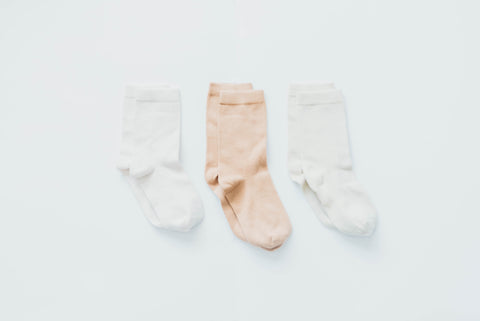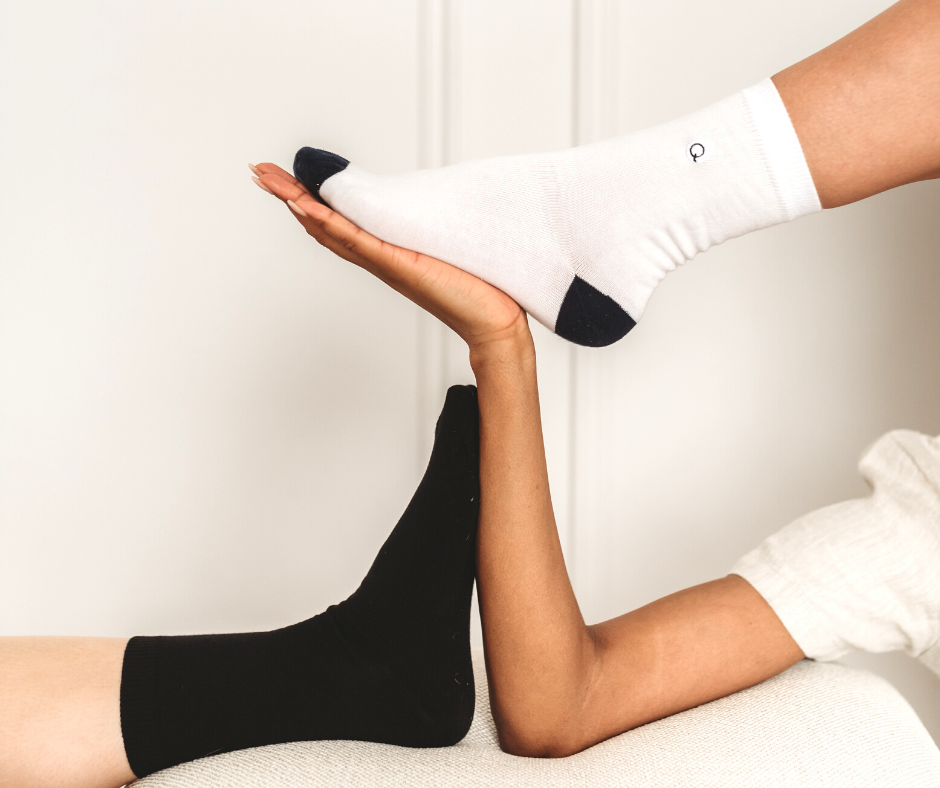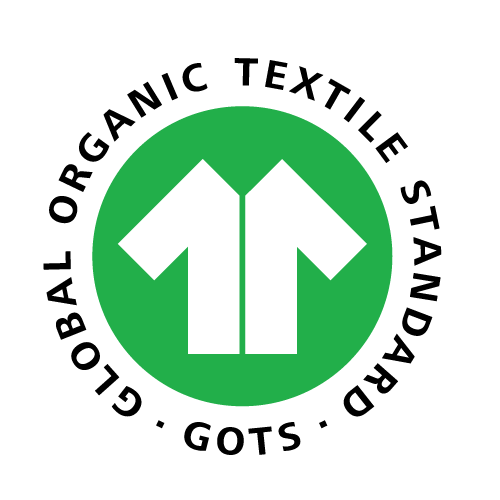
When it comes to selecting fabric that is comfortable and durable, 100% cotton is an ageless choice that has been around for centuries. Cotton has been used to make practical and fashionable clothing and textiles, from ancient civilizations to the present day. If you're reading this, it's likely that you're looking for 100% cotton socks for yourself or your child. You appreciate the natural and amazing qualities of cotton, or maybe you're searching for a material that is best for a skin condition or allergy, and cotton is the top choice.
However, finding cotton-rich socks, let alone 100% cotton socks, is nearly impossible these days. This article will help you understand why 100% cotton socks are not widely available on the market and suggest some alternatives that may be appropriate for your needs.
Why do we look for 100% cotton socks?
Cotton, a natural material derived from the fibres of the cotton plant, has been utilized for centuries to produce textiles. Its extensive history in the clothing industry is a testament to its remarkable qualities of comfort, absorbency, and durability. As an ancient fabric, cotton has played a vital role in the development and advancement of human civilization, providing a reliable source of clothing for communities throughout the ages.
Wearing cotton rich socks and ideally a 95%+ cotton composition sock, provides your feet with comfort, breathability, and a natural feel. They are perfect for all seasons and come in different colors and styles to match your outfit. Additionally, they are ideal for those with skin issues, such as eczema, due to their natural composition, which prevents skin irritation and inflammation. This is why anyone suffering from these skin conditions are seeking a 100% cotton sock to support them
However finding cotton rich socks, let alone 100% cotton socks are near impossible. In theory, 100% cotton socks can be made. However, unlike a T-shirt or a dress, making an item such as a sock that requires elasticity and stretch is a lot more complicated. Cotton on its own has limited stretch and therefore elastane is often used to give the fabric some stretch.
Then there is the need for the socks to hold up and not fall down! An elastic band made from Spandex, Rubber, or Elastane is usually used to hold the sock in its place.
Why do most “Cotton Socks” also contain Polyester?
The vast majority of “cotton socks" (or those that claim to be 100% cotton socks) contain polyester. Polyester, nylon, polyamide and other similar fabrics derived from plastic are used to strengthen the sock and increase durability.
Even the Global Organic Textile Standards (GOTS) has made exceptions for synthetics to be used in socks because of the function a sock must serve. Socks get a lot of friction and constant rubbing. Your entire weight is falling on them and they are constantly rubbing against a floor or shoe. If you think about it, your shoes are not made from mostly natural fibres for this very reason! Of course shoes are used outdoors but the socks do get a lot of weight on them! This is usually why polyester or equivalent fabrics are added - to strength and increase durability of the socks.
However the use of polyester has become much more prevalent, especially for socks and in reality most “cotton socks” have very actually very little cotton in them! They may have as much as 40% cotton and still call their socks “cotton” socks. Polyester and other synthetics are much cheaper than cotton and therefore more and more of our clothing is made mostly from polyester instead of natural fibres.
How do I know if I'm buying 100% cotton socks?
Read the label and composition of the socks. If the majority ingredient is not cotton, these are not cotton-rich socks. You can also tell if polyester is used and how much of it is used. Stay away from products that do not declare composition; something that is becoming more prevalent online.
Are Q for Quinn socks 100% cotton?
Q for Quinn was founded because Melita could not find a cotton rich sock for her son’s eczema. After years of research and learning about sock making, the small team realized that a true 100% cotton sock was not practical. Some elastane was required to hold the sock up. This is why Q for Quinn socks are made from 98% organic cotton and 2% elastane but have been tested and tried for various skin conditions and allergies.
With this composition Q for Quinn was able to rapidly expand our product line and offer different colours and styles of socks without compromising on fit and comfort.
Today Q for Quinn has helped 1000s of customers in their struggle with eczema. Here are some testimonials from our customers:
What a fabulous product. The quality of these socks is second to none. Purchased for my four year old grandson who has eczema. - Pamela D.
The only socks that won’t flare up my kids eczema
The only socks I trust for my kids eczema - Vinny H
oh so smooth!
I am currently in a fight with eczema, but I was thrilled to find Q is for Quinn socks! They are OH SO SMOOTH - nothing to irritate my skin at all! I read the sizing suggestions and they were perfect! - Nov
My little guy has really bad eczema on the tos of his feet. Typically, it would worsen as the day went on I think these socks cause less irritation because it hasn’t necessarily worsened as it did with his other socks. Definitely recommend! - Eunice P.
Awesome!
I’ve only had my socks for a few weeks. Bought them to help with my eczema. I haven’t had them long enough to say if they truly help with that but I will say I used to have to take my shoes off during the day and itch my feel and I haven’t had to do that since getting these. I really like them. I’d love to see some ankle socks in generic colors. Also, (getting greedy here) but no show socks!!! I wear lots of cute tennies to work and hate when my socks shows:). Already recommended to my friend who’s kid also has eczema. - Rachel Hansen
Cozy and comfy
I have eczema on my ankles , I was suggested to wear cotton socks . I’ve noticed a lot less irritation since I’ve started wearing these . I’m hooked . Wish you would make a athletic style so I can wear them to the gym - Rob R.
Read more of our reviews from customers with sensitive skin here
Q for Quinn socks also do not contain any latex and are actually certified by GOTS - the gold standard for organic textiles.
We also have undyed options like this set here for kids which come in the three natural colours of cotton.

We have various styles, in addition to crew. We have an ankle, undyed 98% organic cotton sock that is one of our bestsellers.
Why does organic cotton matter?
You know that buying a cotton rich socks matters but what about if it should be made from organic cotton?
Cotton has been used to make clothing for thousands of years, but the cotton we use today is not the same as the cotton used in ancient times. The conventional cotton industry heavily relies on pesticides, insecticides, and other chemicals to grow cotton at a faster pace and prevent damage from pests. However, these chemicals can have harmful effects on the environment and the people who work with the cotton. Choosing organic cotton can help reduce the amount of chemicals used in cotton production and promote a more sustainable and eco-friendly approach to textile manufacturing.
If looking to support a skin condition like eczema, organic cotton is more suitable because of the highly restricted use of chemicals.
Here are 5 specific reasons why organic cotton is better than conventional cotton.
- Healthier for you: Organic cotton is grown without the use of synthetic pesticides, fertilizers, or genetically modified organisms (GMOs). This means that you are not exposed to harmful chemicals that can have negative effects on your health.
- Better for the environment: Organic cotton farming practices promote healthier soil and reduce water usage. These practices also reduce the risk of soil erosion and help preserve biodiversity.
- More sustainable: Organic cotton farming relies on natural methods and materials, reducing the reliance on fossil fuels and contributing to a more sustainable production process.
- Softer and more comfortable: Organic cotton is often softer and more comfortable than regular cotton due to the lack of harsh chemicals used in the growing and manufacturing processes.
- Supports fair trade and labor practices: Many organic cotton farmers and manufacturers adhere to fair trade and labor practices, ensuring that workers are treated fairly and receive fair wages for their labor
Again, please ensure you read the label if buying organic. If a product is truly organic it would carry the certification like GOTS - see an example of our socks below.

You can find the best selection of almost 100% cotton socks online at Q for Quinn. And, we offer 100% cotton baby socks and 100% cotton socks for kids.
We are also proud to be a GOTS-certified organic brand. This certification is proof that our cotton products are organic, traceable, and woven with ethics.
Our organic cotton is grown without the use of harsh chemicals or GMOs. As a result, it is a healthier choice for both you and the environment.
Our socks are traceable back to the farmers who grew the cotton. And our socks are made in OEKO-TEX® Standard 100-certified facilities to ensure our products don't contain any dangerous chemicals or toxins.
Our goal is to offer your family safe and sustainable socks without sacrificing comfort or style, so you can feel good when buying our socks for your loved ones. And while our all cotton socks are a hot seller in our catalog, we also offer a full range of organic cotton clothing.Whether you’re shopping for yourself, your children, your grandkids, or anyone in between - you’ll find the best selection of safe, natural cotton clothing (and even some awesome merino wool socks and linen sets!) at Q for Quinn.


















Leave a comment